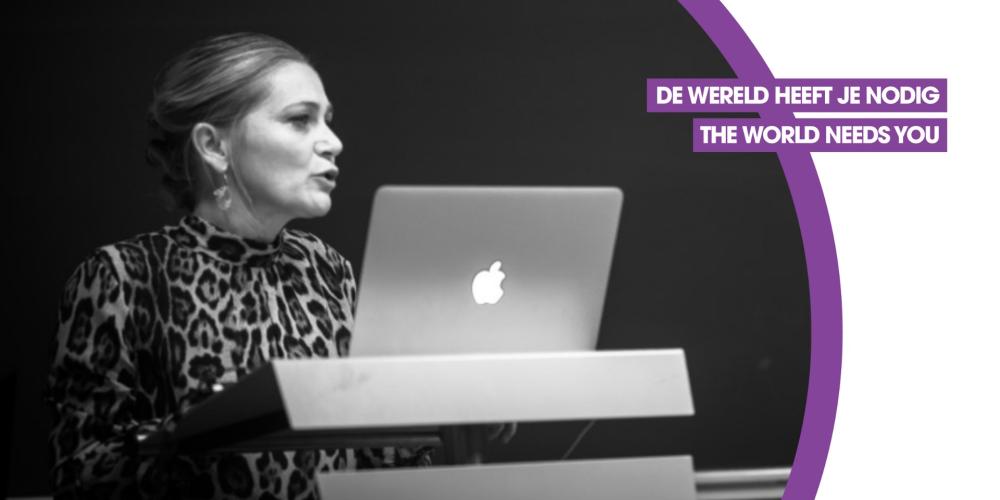
Teaching as a purpose. Inge Placklé works at our teacher training college, the MILO, and coordinates the VUB campuses in Diest and Leuven. Wanting to do more for young people was the start of a passionate commitment to education for her. Cooperation has always been at the heart.
Read more inspiring stories:
Wouter Hessels: Film as a bridge to a shared world.
Adam Alexander Jukl. Seizing opportunities is a moral duty.
Kevin Smets. Pushing boundaries with images
Kinograph. Let’s go to the campus cinema
VUB film festival starts with ‘Partnership’
As a young teacher in special education in Genk, Inge had many pupils from vulnerable backgrounds in her class. Many of them didn’t belong there; their precarious social situation had deprived them of other educational opportunities. Occasionally she would leave some clothes at the back of the class, or a teddy bear for a child from a home.
Soon she felt she needed to do more. She started a master’s in educational sciences while continuing to work as a teacher. There, too, she continued looking for ways to do her part to promote equal educational opportunity. But her hunger to make a difference for young people was not yet satisfied. She started a PhD on powerful learning environments for PAV, the integrated teaching of basic education in vocational schools. She also combined that with her teaching work.
Believing in the talents of young people
Today, Inge is still training the teachers of tomorrow, at VUB and PXL. She is president of VELOV, the professional association of teacher trainers in Flanders. She is also active in the GO! Adite school group in Diest, Aarschot and Tessenderlo, the region where she helped build up VUB after the fusion of adult education centres with academic teacher training.
Now, 25 years later, her drive to support young people – particularly the most vulnerable among them – still stands out. It was purpose that led her down this path.
“Young people can feel it when their teacher believes in them,” Inge explains. “In special education, students often have a lot of experience of failure behind them. With a ‘growth mindset’ from the teacher, students start to believe in themselves again. They pick up the learning spiral again. I want to train teachers who can make a difference for these young people.”
Collaboration is the future
In vocational secondary education, working with businesses makes sense, and PAV has a cross-curricular approach. “But it shouldn’t stop there,” says Inge, making a case for partnership. “Education has to integrate itself into local communities and use real-life environments. At the same time, education can also mean a lot as a partner for social initiatives.”
The new attainment targets are also based on key competencies that are realised through collaboration. “The modern teacher is a team player, a talent-oriented, engaged co-designer and community thinker. This requires a learning culture of collaboration in the school, and time and space to shape interdisciplinary learning environments. A team-based approach can also make a substantial difference for both students and newly qualified teachers.”
MILO’s teacher trainers are therefore leading by example. “A great example is the Investigating Schools project. In it, teachers, student teachers and a teacher educator acting as a bridge builder examine a problem in the school together.
“We have also launched a project, DESIDERATRA, to work with hard-to-reach young people in Brussels and the Rand on the issues of climate. It’s not easy to get young people with primary survival concerns excited about such an issue. Through design thinking, daring to dream and collaboration with our student teachers and local associations such as the Future Workshops, we want to make it possible.
“As teacher trainers, we also try to be close to our students. And at VUB as a whole, there is that approachable, warm culture.”
The VUBers from Leuven and Diest
“Our partner on the De Oranjerie campus in Diest is right in the middle of the school community. Diest has a rich tradition of training teachers, and the Leuven campus also has a rich educational context,” Inge says. “The possibility of evening classes means that quite a few teachers-in-training are studying there. This brings a nice cross-pollination between the insights from the teacher training programme and the inspiring examples they experience at the schools. A lot of people in other jobs also choose to reorient themselves with great conviction. They bring their wider perspective from other sectors. That is very instructive. That’s also the case in Anderlecht.”
Itching to get started yourself? Then get going today. The world needs teachers – especially ones with as much passion as Inge.